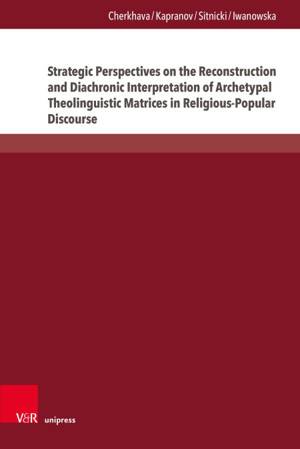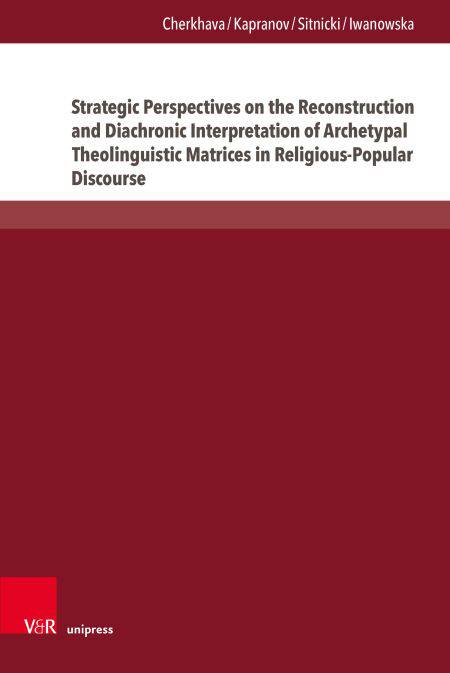
- Afhalen na 1 uur in een winkel met voorraad
- Gratis thuislevering in België vanaf € 30
- Ruim aanbod met 7 miljoen producten
- Afhalen na 1 uur in een winkel met voorraad
- Gratis thuislevering in België vanaf € 30
- Ruim aanbod met 7 miljoen producten
Zoeken
Strategic Perspectives on the Reconstruction and Diachronic Interpretation of Archetypal Theolinguistic Matrices in Religious-Popular Discourse E-BOOK
Insights from English, German, and Ukrainian within Indo-European and Nostratic Frameworks
Olesya Cherkhava, Yan Kapranov, Maksym W. Sitnicki, Bożena Iwanowska
€ 40,00
+ 40 punten
Omschrijving
This monograph investigates the interplay of linguistics, theology, and cognitive science by analyzing the evolving theolinguistic matrices within religious and popular discourse. Focusing on English, German, and Ukrainian, it traces the diachronic interpretation of key religious concepts—righteousness, faith, and repentance—within Indo-European and Nostratic frameworks. Through comparative-historical methods and cognitive-matrix analysis, the authors reveal how these archetypal matrices shape theological communication across cultures. The work offers deep insights into the construction of religious meaning, engaging scholars in linguistics, theology, and cultural history to explore the relationship between language, faith, and identity.
Specificaties
Betrokkenen
- Auteur(s):
- Uitgeverij:
Inhoud
- Aantal bladzijden:
- 149
- Taal:
- Engels
- Reeks:
Eigenschappen
- Productcode (EAN):
- 9783847018179
- Verschijningsdatum:
- 13/04/2025
- Uitvoering:
- E-book
- Formaat:

Alleen bij Standaard Boekhandel
+ 40 punten op je klantenkaart van Standaard Boekhandel
Beoordelingen
We publiceren alleen reviews die voldoen aan de voorwaarden voor reviews. Bekijk onze voorwaarden voor reviews.








